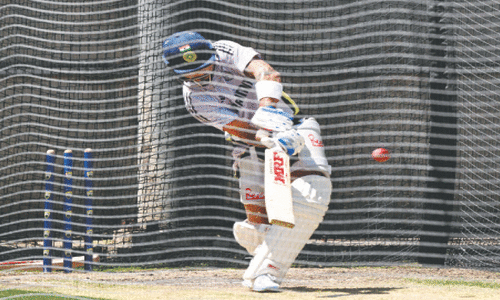
ROME: The 2012 London Olympics will be the most tested Games yet and 'doping cheats' should not bother attending, a World Anti-Doping Agency (WADA) expert said on Thursday.
Professor David Cowan, head of the Drug Control Centre at King's College London which is Britain's only WADA-accredited laboratory, said there would be more than 5,000 tests at the Games or roughly one for every two athletes.
Most results were expected to be analysed within a day.
“If you want to take drugs, then don't come to London,” said Cowan, speaking in Rome at the end of a two-day gathering of scientists focusing on the detection of doping.
“The IOC (International Olympic Committee) aims to test more and more athletes,” he said.
“So if Beijing was about 5,000, it will be many more with the majority in a 24-hour turnaround time. If there were about 10,000 athletes in Beijing, it will be one in two that are tested.”
Britain's Sports and Olympics minister Hugh Robertson has previously identified doping as the most serious threat to the integrity of the Games in sporting terms.
“The IOC motto is Citius, Altius, Fortius – faster, higher and stronger – and we are looking for a faster analysis, higher sensitivity and stronger proof when it comes to testing,” said Cowan.
Cowan, who will head a 10-strong group of scientific experts at the Olympics dedicated to rooting out athletes taking performance-enhancing drugs, said WADA was winning the battle.
“Since WADA came on the scene, the scientific research is better, the testing is better and we are now discussing how they might cheat,” he said.
“We have been keeping up with latest practises and very often we are ahead.”
Compared to Athens' 26, there were 20 cases of doping including six horses at the Beijing Games, 0.42 per cent of athletes to 0.71 per cent four years previously.
“We are collecting samples out of competition to target testing during the period when cheats might be taking drugs, and we've been discussing how to make sure tests are legally defensible,” said Cowan.
An athlete's biological passport, which builds a biological profile and detects suspicious changes in the blood, will also be a weapon in the anti-doping fight at the 2012 Games.
“The passport system is advancing,” said Professor Cowan.
“It's a continuous process as we feed data into the register so we can track the athlete's blood history. We've already been using it for a while and we'll have it for London too.”














































Dear visitor, the comments section is undergoing an overhaul and will return soon.